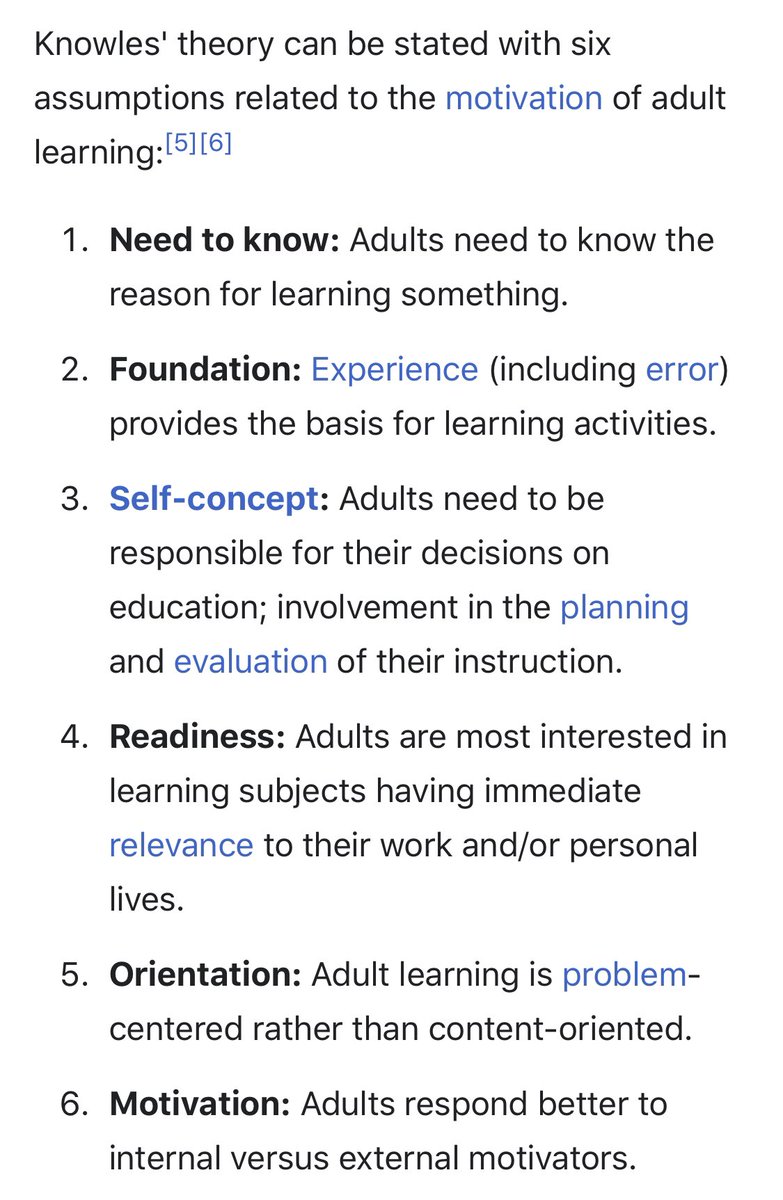I have never found the distinction between andragogy and pedagogy all that useful.
Andragogy describes one possible approach to teaching adults. The literature around andragogy is quite narrow. Pedagogy is a broader term used to describe the philosophy and practice of teaching. https://twitter.com/dustinhosseini/status/1297881453431316480">https://twitter.com/dustinhos...
Andragogy describes one possible approach to teaching adults. The literature around andragogy is quite narrow. Pedagogy is a broader term used to describe the philosophy and practice of teaching. https://twitter.com/dustinhosseini/status/1297881453431316480">https://twitter.com/dustinhos...
For folks who get hung up on the roots of the words, the etymology of both is complicated. And the meanings of words evolve beyond their roots. And I’d hope so, otherwise “andragogy” would refer only to teaching/leading MEN.
Some of the basic tenets of andragogy apply to teaching children, as well as, if not better than, they apply to teaching adults. The presumption that adults need to play an active role in determining the direction of their own learning, but children don’t, is patronizing as hell.
It’s valuable to think and talk about difference when we talk about learning, but age is not the only or most fundamental difference worth talking about (or weirdly classifying the entirety of our teaching approaches around).
Making generalization about how people at different ages learn becomes especially problematic with college students. I have taught college students from 16-years-old to 88-years-old. I cannot neatly lump all of these folks together.
Policing the distinction between andragogy and pedagogy also serves to widen the gulf between K-12 teachers and college/continuing education teachers. We need to be having more (not fewer) conversations across these divides.
I have nothing against talking about andragogy as one 1960s-era theory that has roots in a few earlier theories and has propagated slightly beyond these bounds. But it isn’t at odds with “pedagogy,” which contains lots of complementary and lots of conflicting theories/approaches.

 Read on Twitter
Read on Twitter


